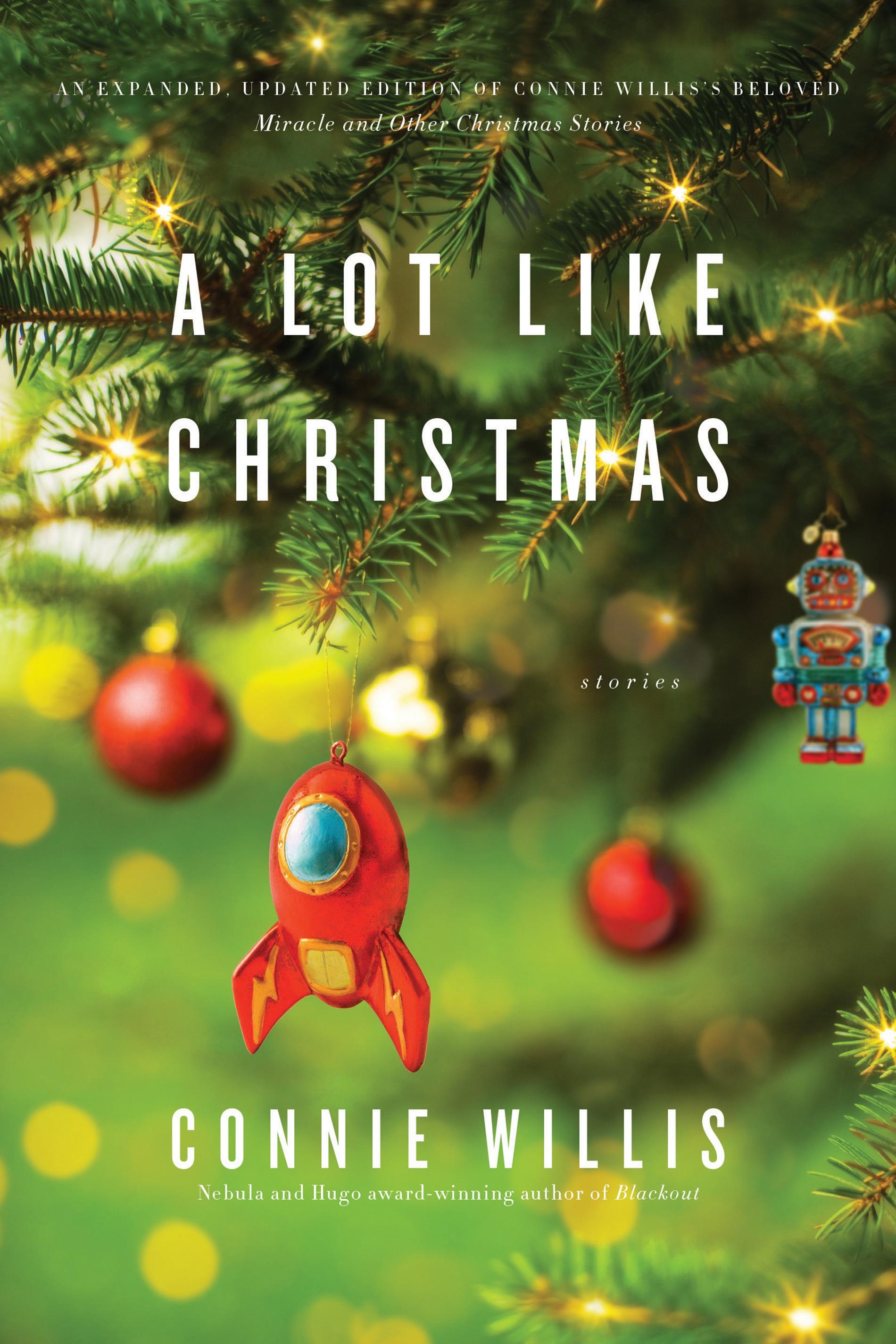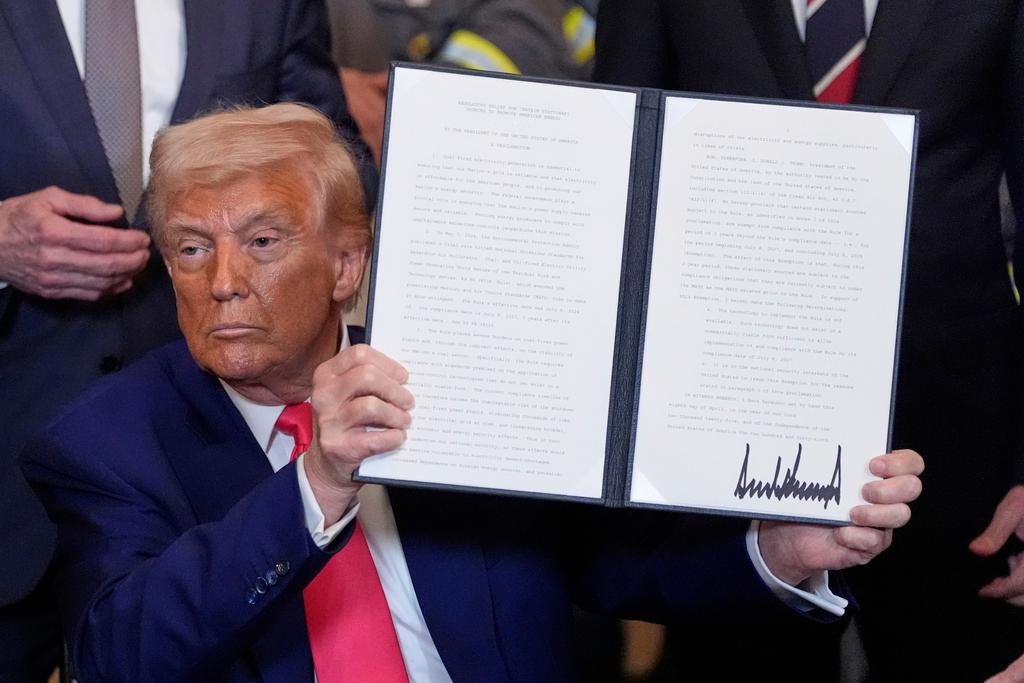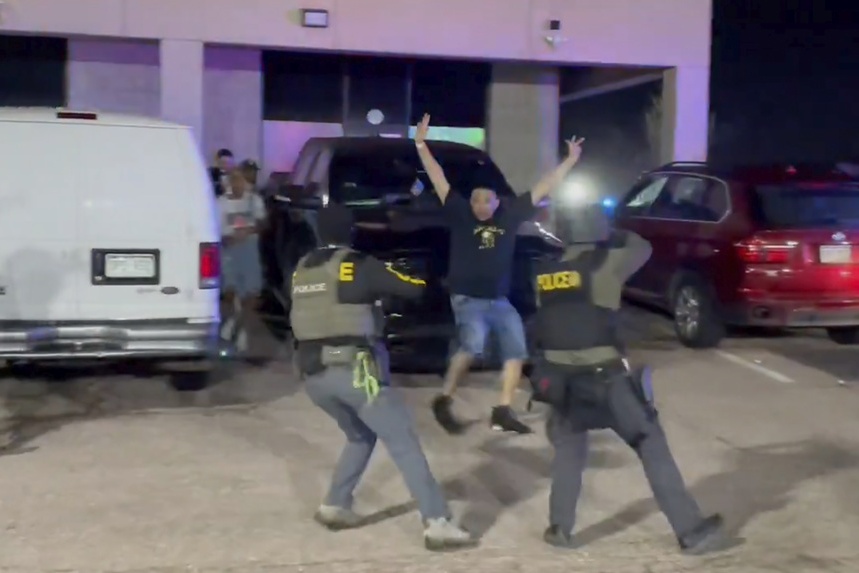
A robot that wants to be a Rockette and a Christmas ghost who takes the shape of a hippie are some of the characters in a new short story collection from Greeley science fiction writer Connie Willis. It's called "A Lot Like Christmas."

Willis, who has racked up the biggest awards in sci-fi including the Hugo and the Nebula, tells Colorado Matters that sci-fi is a great genre to explore at Christmas because "it's a genre that's always been involved with Christmas."
"The most famous Christmas story of all is [Charles] Dickens' 'A Christmas Carol,' " Willis says, "which is in fact a ghost story and we in science fiction like to claim ghost stories as part of our genre, anything that involves something out of the ordinary."
Speaking of "A Christmas Carol," it's one of Willis' favorite holiday reads, as well as "Santaland Diaries" by David Sedaris and "The Tree That Didn't Get Trimmed" by Christopher Morley. She shares more of her Christmas must-reads in her book.
Willis' favorite Christmas stories and poems:
Good things to read at Christmas are trickier to find than good movies. Everything out there right now seems to be either treacly, annoyingly inspirational, or about someone attempting to overcome drug addiction, prostitution, and/or abusive parents. But here are twenty that manage to avoid being pious, goopily sentimental, and/or suicidally depressing. 1. "The Original Christmas Story" (Matthew Chapter 1:18–25, 2:1–18, Luke Chapter 1:5–80, 2:1–52): It’s got everything you could ask for in a story: adventure, excitement, love, betrayals, good guys, bad guys, narrow escapes, mysterious strangers, and a thrilling chase scene. And the promise of a great sequel. 2. "A Christmas Carol" by Charles Dickens: The perfect Christmas story, which proves beyond a shadow of a doubt that the only way to begin a Christmas story is with the line, “Marley was dead: to begin with.” And just because you know it all by heart—Scrooge and Tiny Tim and the Ghost of Christmas Past, “I forged these chains in life,” and the bed-curtains and the turkey and “God bless us, everyone!”—is no reason not to read it again. 3. “The Tree That Didn't Get Trimmed” by Christopher Morley: Obviously inspired by Hans Christian Andersen’s sickeningly sentimental “The Fir Tree,” this story of a tree that doesn't get bought by anyone and instead gets thrown away not only avoids all the sins of its antecedent, but ends by telling a touching parable of those ultimate Christmas themes, suffering and redemption. 4. “Christmas Trees” by Robert Frost: Robert Frost is one of my favorite poets. His poems are the essence of New England—taciturn and down-to-earth—and unique. Take, for example, that other poem of his that people associate with Christmas, “Stopping by Woods on a Snowy Evening.” Or this one, about a man with a hill full of fir trees—and the man from the city who wants to buy them. 5. "The Best Christmas Pageant Ever" by Barbara Robinson: This modest children’s story of a church Nativity pageant invaded by the horrible Herdman kids, who steal and swear and smoke cigars (even the girls), accomplishes the nearly impossible—the creation of a new classic—and makes the reader look at the story of Mary and Joseph and the baby “wrapped in wadded-up clothes” as the Herdmans do, with new eyes. 6. “Santaland Diaries” by David Sedaris: I first heard this on NPR, and I was riveted. I’d never heard a take on Christmas so wry, so cynical, and so dead-on. David Sedaris has gone on to write lots of pieces about Christmas, but this diary of his days as an elf in the toy department at Macy’s remains my favorite. 7. “The Santa Claus Compromise” by Thomas Disch: This parable of a future in which six-year-olds have finally gotten their political rights and are intent on doing investigative journalism to expose Santa Claus’s true identity could have been written in today’s group-rights-activism climate. The fact that it was written back in 1974, when satire was still possible, makes it chilling as well as funny. 8. “Journey of the Magi” by T. S. Eliot: The Bible doesn’t tell us anything about what the wise men’s journey to Bethlehem was like, or how much it must have cost them emotionally to make it. Or what happened to them afterward, when it was time to go back home. 9. “Dancing Dan’s Christmas” by Damon Runyon: When the dust settles on the twentieth century, it’s my belief that Damon Runyon will finally be recognized as one of our greatest writers and will be fully appreciated for his clever plots, his unerring ear for language, and his cast of guys, dolls, gangsters, bookies, chorus girls, crapshooters, Salvation Army soul-savers, high rollers, lowlifes, louts, and lovable losers. I chose “Dancing Dan’s Christmas,” a story involving a mean mobster, a Santa Claus suit, a diamond vanity case, and a few too many Tom and Jerrys, to include here, but it was a tough call. “Palm Beach Santa Claus” and “The Three Wise Guys” were both a close second. 10. “The Star” by Arthur C. Clarke: One of the classics of science fiction by one of the masters in the field, this tells a troubling story about the star that guided the wise men to Bethlehem. 11. “The Gift of the Magi” by O. Henry: O. Henry is another underappreciated author, as witness the fact that dozens of stories, screenplays, and sitcoms have copied the plot of this story. But none of them have ever managed to copy the charm or the style of the original, a simple little tale of a watch fob and a set of tortoiseshell combs. 12. "The Memorial Hall Murder" by Jane Langton: For all you mystery fans, Christmas offers an abundance of Christmas stories and detectives, from Sherlock Holmes (“The Adventure of the Blue Carbuncle”) to Hercule Poirot (Murder for Christmas), but you may not have met Detective Homer Kelly or read this mystery about a murder that occurs while a college choir’s rehearsing the “Messiah.” And it doesn’t get any more Christmassy than Handel and choirs. Or murder. 13. “Rumpole and the Spirit of Christmas” by John Mortimer: If you’ve encountered the irascible Old Bailey hack, Horace Rumpole, on PBS’s Mystery, he seems like the last person to have any Christmas spirit, and he is. Which is why this story works so well. Leave it to John Mortimer to teach us a new meaning of “the Christmas spirit.” 14. “The Chimes” by Charles Dickens: A Christmas Carol is only one of a score of holiday stories Dickens wrote. A few years ago I decided to read them all, and when I read “The Chimes,” I got a huge shock, as will you. I won’t give it away, but let’s just say the plot of a certain very famous Christmas movie bears a suspicious resemblance to this Dickens story about a man who wishes he’d never been born. 15. "Wishin’ and Hopin’: A Christmas Story" by Wally Lamb: Set in the era of LBJ, Dragnet, and the Beatles, this story, about a fifth-grade boy who has a famous cousin (whom no one in the family has actually ever met) and who’s been cast as the little drummer boy in the Catholic school Christmas pageant but who’s more interested in girls, has pretty much everything you could want: nuns, rosaries, impure thoughts, angels with light-up halos, suicide Cokes, dodgeball, Dondi—and Annette Funicello. 16. "The Tailor of Gloucester" by Beatrix Potter: When Beatrix Potter (of Peter Rabbit fame) was staying with relatives in the west of England, she heard a story of a tailor who’d fallen ill before he could finish sewing a coat he was making for the mayor and found it miraculously completed when he returned to work, and spun it into a Christmas tale about a bad cat, some beleaguered mice, and a twist of cherry-colored thread. The illustrations are some of Potter’s loveliest, and the story’s charming. 17. “Christmas Eve: Nearing Midnight in New York” by Langston Hughes: One of my favorite poets, Langston Hughes has written Christmas-themed poems in several moods and modes, from the traditional “Shepherd’s Song at Christmas” to the slashingly bitter “Merry Christmas,” and you should read them all. But I like this one, with its city images and tentative “almosts,” the best. 18. “Another Christmas Carol” by P. G. Wodehouse: There’s no way to describe a P. G. Wodehouse story, so I won’t even try. I’ll just say that this is the only Christmas story I know of that involves the bubonic plague and tofu, and that, if you’ve never read him, there could be no better Christmas gift than discovering P. G. Wodehouse. 19. “Down Pens” by Saki (H. H. Munro): I love all Saki stories, but I’m especially fond of this take on the task of writing Christmas thank-yous, since my research on the subject for my novel Crosstalk (which consisted mostly of reading advice columns) proved conclusively that human beings think more about thank-you notes than anything else. Including sex. 20. “For the Time Being: A Christmas Oratorio” by W. H. Auden: Part play, part poem, all masterpiece, this long work is what you should read in January, when you’re taking down the Christmas decorations (and your sense of good will toward men) and putting them away for another year—and then facing the bleak post-Bethlehem world we all find ourselves living in. Excerpted from A LOT LIKE CHRISTMAS by Connie Willis. Copyright © 2017 by Connie Willis. Excerpted by permission of Del Rey Books, an imprint of Random House, a division of Penguin Random House LLC. All rights reserved. |
Related:









